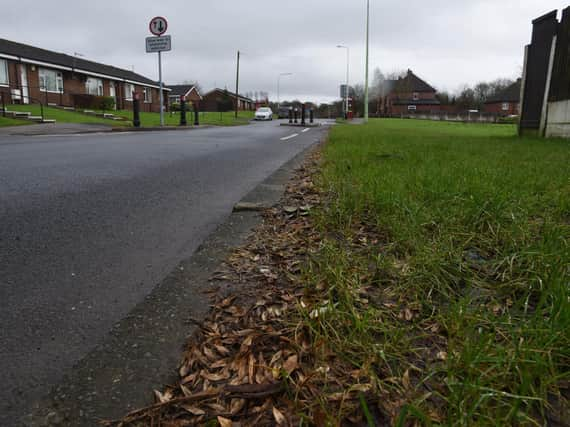Controversial weedkiller still in use on the streets of Chorley - because of health and safety concerns


Glyphosate came to global attention three years ago when a San Francisco court ruled that the chemical - sold under the brand name Roundup - had caused a former school groundsman to develop terminal non-Hodgkin’s lymphoma.
Roundup’s manufacturer Monsanto and parent company Bayer have stood by the safety of the product and it remains licensed for use in the UK, European Union and most parts of America.
Advertisement
Hide AdAdvertisement
Hide AdLancashire County Council also continues to use the herbicide in districts where it carries out weeding work on highways and pavements.
However, in 2019, around a thousand people petitioned Chorley Council to stop spraying it in public spaces.
The authority has since reduced its reliance on glyphosate by 35 percent - but a meeting of the full council heard that the chemical is still being used on the busiest and fastest roads in the borough.
In a public question at the meeting, Green Party activist Andy Hunter-Rossall said he witnessed the substance being put down on Eaves Green Road late last year.
Advertisement
Hide AdAdvertisement
Hide AdWhen he quizzed the council over its use on the route, he said he was told that it was due to “health and safety concerns” relating to staff operating alternative heat-based weed-killing kit on or close to the highway.
However, Mr. Hunter-Rossall said Eaves Green Road was a “perfectly safe environment” for such work as it was not a particularly busy road.
Members heard that the council was “committed” to cutting glyphosate usage and had done so in its parks and open spaces.
However, cabinet member for streetscene services Adrian Lowe said that new thermic hot air blowers, like those bought by the authority last year, were not “fully mobile”.
Advertisement
Hide AdAdvertisement
Hide Ad“This makes it unsafe to use on roads with high traffic volume or speed as it is necessary to walk in the highway to treat weeds in the kerbside.
“When working within 0.5 metres of the highway, traffic management safety measures need to be in place - this includes [when] working on the pavements.
“Unfortunately, these considerations have meant that we have so far been unable to commit to ceasing herbicide application completely.
“For practical reasons, where a quad bike is deployed to treat the roads [with glyphosate], it will also be used to treat the pavements,” explained Cllr Lowe.
Advertisement
Hide AdAdvertisement
Hide AdThe meeting heard that the chemical was also being targeted on invasive non-native species in the borough, such as Japanese Knotweed, until effective alternatives can be found.
Lancashire County Council is responsible for highways, but has outsourced weed treatment to some district authorities in the region - including Chorley.
County Hall was itself the subject of a call from the Green Party back in 2018 to suspend its use of glyphosate, but declined. At the time, the authority said it had suitable safety measures in place to protect staff working with the chemical.
The county council has told the Local Democracy Reporting Service that its position today remains unchanged.
Advertisement
Hide AdAdvertisement
Hide AdMonsanto was originally ordered to pay $289m in the case of school groundsman Dewayne Johnson who blamed glyphosate-based Roundup for his cancer. Appeals by Bayer, who bought Monsanto in 2018, have since seen that figure reduced to $20.5m.
The company has also appealed two other multi-million pound judgements concerning Roundup, but it was reported last summer that it had agreed to pay £10.9bn to settle around 75 percent of another 125,000 outstanding claims relating to the product.
Comment Guidelines
National World encourages reader discussion on our stories. User feedback, insights and back-and-forth exchanges add a rich layer of context to reporting. Please review our Community Guidelines before commenting.